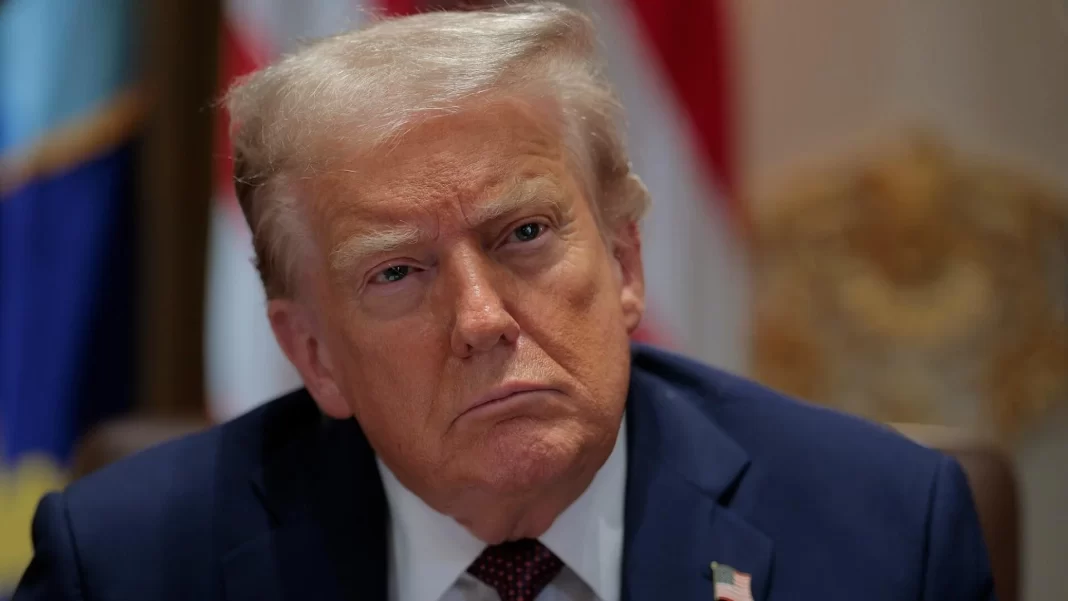Estimated reading time: 6 minutes
President Trump has claimed the authority to bypass Congress and impose sweeping tariffs on foreign products, arguing the import duties are necessary to strengthen the U.S. economy.
Now a federal appeals court has thrown a roadblock in his path.
The U.S. Court of Appeals for the Federal Circuit ruled Friday that Mr. Trump went too far when he declared national emergencies to justify tariffs on nearly every country on Earth. The ruling largely upheld a May decision by a federal trade court in New York.
But Friday’s 7-4 appeals court decision tossed out a part of that ruling striking down the tariffs immediately, giving his administration time to appeal to the U.S. Supreme Court. The ruling represents a major setback for Mr. Trump, who has said his trade policies will enrich the U.S. by bringing back manufacturing jobs and contributing billions in new revenue for the federal government.
“This ruling highlights a serious legal threat to one of the president’s most high-profile economic policies,” said Nigel Green, CEO of financial advisory company deVere Group, in an emailed report.
On Friday, Mr. Trump lashed out against the 7-4 ruling in a Truth Social post, calling the appeals court “Highly Partisan” and noting that the tariffs are still in effect.
Six of the seven judges who ruled against the tariffs are appointees of Democratic presidents, while the seventh is an appointee of former President George H.W. Bush. Of the four judges who dissented, two were appointed by former President Obama and two by former President George W. Bush.
Here’s what could happen next as the legal case proceeds.
How did the dispute arise?
Friday’s ruling came as part of a months-long legal challenge over the tariffs brought by Democratic states and small businesses, which are arguing that the president has exceeded his authority in issuing the import duties.
The appeals court’s decision is focused on the tariffs Mr. Trump imposed in April on most trading partners, along with earlier levies on China, Mexico and Canada.
Mr. Trump on April 2 — or Liberation Day, he called it — imposed so-called reciprocal tariffs of up to 50% on countries with which the U.S. runs a trade deficit and 10% baseline tariffs on almost everybody else.
The president later suspended the reciprocal tariffs for 90 days to give countries time to negotiate trade agreements with the U.S. — and reduce their barriers to American exports. Some of them did — including the U.K., Japan and the EU — and agreed to deals with Mr. Trump to avoid even bigger tariffs.
Countries that didn’t comply faced higher tariffs earlier this month. Laos got rocked with a 40% tariff, for instance, and Algeria with a 30% levy. Mr. Trump also kept the baseline tariffs in place.
What is the IEEPA?
Mr. Trump justified the taxes under the 1977 International Emergency Economic Powers Act, or IEEPA, by declaring longstanding U.S. trade deficits “a national emergency.”
In February, he’d invoked the law to impose tariffs on Canada, Mexico and China, saying that illegal immigration and drug trafficking amounted to a national emergency and that the three countries needed to do more to stop it.
The U.S. Constitution gives Congress the power to set taxes, including tariffs. But lawmakers have gradually let presidents assume more power over tariffs — and Mr. Trump has made the most of it.
Does the ruling apply to all tariffs?
No, the court’s ruling doesn’t cover all of Mr. Trump tariffs. For instance, his levies on foreign steel, aluminum and autos were imposed under a different regulation after Commerce Department investigations concluded that those imports were threats to U.S. national security.
Nor does it include tariffs that Mr. Trump imposed on China in his first term — and President Biden kept — after a government investigation concluded that the Chinese used unfair practices to give their own technology firms an edge over rivals from the U.S. and other Western countries.
The administration had argued that courts had approved then-President Richard Nixon’s emergency use of tariffs in the economic chaos that followed his decision to end a policy that linked the U.S. dollar to the price of gold. The Nixon administration successfully cited its authority under the 1917 Trading With Enemy Act, which preceded and supplied some of the legal language later used in IEEPA.
In May, the U.S. Court of International Trade in New York rejected the argument, ruling that Trump’s Liberation Day tariffs “exceed any authority granted to the President” under the emergency powers law. In reaching its decision, the trade court combined two challenges — one by five businesses and one by 12 U.S. states — into a single case.
On Friday, the federal appeals court wrote in its 7-4 ruling that “it seems unlikely that Congress intended to … grant the President unlimited authority to impose tariffs.”
What happens next?
The president vowed to take the fight to the Supreme Court. “If allowed to stand, this Decision would literally destroy the United States of America,” he wrote on his social media platform on Friday.
A dissent from the judges who disagreed with Friday’s ruling clears a possible legal path for Mr. Trump, concluding that the 1977 law allowing for emergency actions “is not an unconstitutional delegation of legislative authority under the Supreme Court’s decisions,” which have allowed the legislature to grant some tariffing authorities to the president.
The government has argued that if Mr. Trump’s tariffs are struck down, it might have to refund some of the import taxes that it’s collected, delivering a financial blow to the U.S. Treasury. Revenue from tariffs totaled $159 billion by July, more than double what it was at the same point the year before.
Tariffs are paid by U.S. importers, such as American manufacturers or retailers that rely on foreign-made products. While the U.S. companies typically swallow some of the cost, they pass on much of the added expenses to consumers in the form of higher prices.
The Justice Department warned in a legal filing this month that revoking the tariffs could mean “financial ruin” for the U.S.
It could also put Mr. Trump on shaky ground in trying to impose tariffs going forward.
“While existing trade deals may not automatically unravel, the administration could lose a pillar of its negotiating strategy, which may embolden foreign governments to resist future demands, delay implementation of prior commitments or even seek to renegotiate terms,” Ashley Akers, senior counsel at the Holland & Knight law firm and a former Justice Department trial lawyer, said before the appeals court decision.
Does the Trump administration have other options?
Mr. Trump does have alternative laws for imposing import taxes, but they would limit the speed and severity with which he could act.
For instance, in its decision in May, the trade court noted that Mr. Trump retains more limited power to impose tariffs to address trade deficits under another statute, the Trade Act of 1974. But that law restricts tariffs to 15% and to just 150 days on countries with which the U.S. runs big trade deficits.
The administration could also invoke levies under a different legal authority — Section 232 of the Trade Expansion Act of 1962 — as it did with tariffs on foreign steel, aluminum and automobiles. But that requires a Commerce Department investigation and cannot be imposed at the president’s sole discretion.
“Even if the tariffs are struck down, we believe the Trump administration will look for new ways to tax imports or otherwise raise revenue from companies selling into the U.S.,” noted Green of the deVere Group.
Cbsnews.com



































